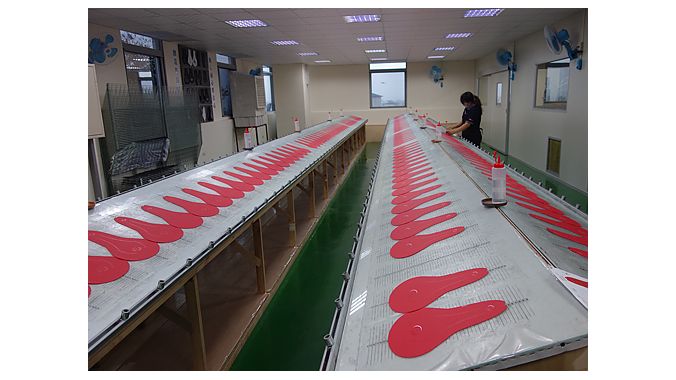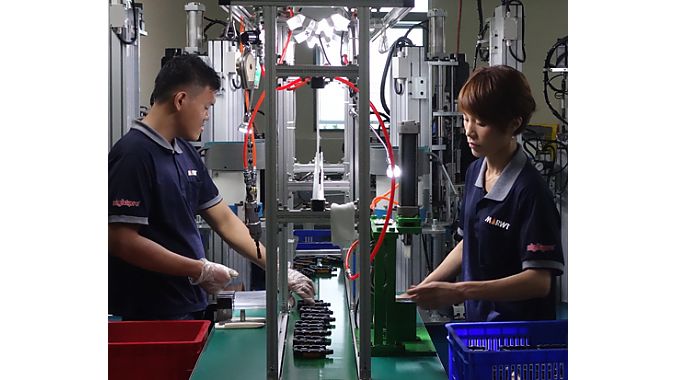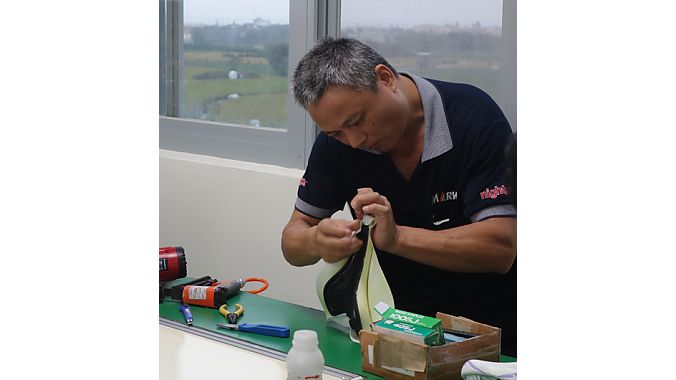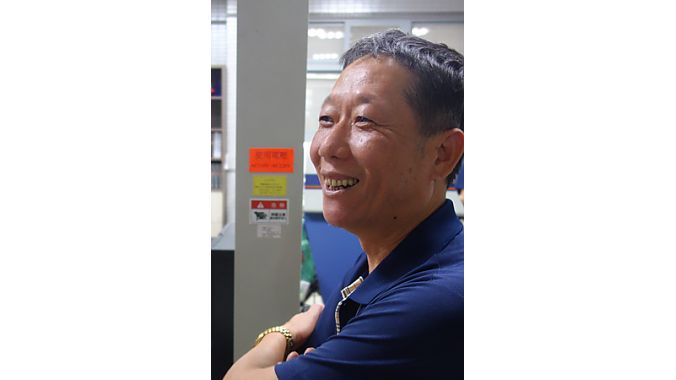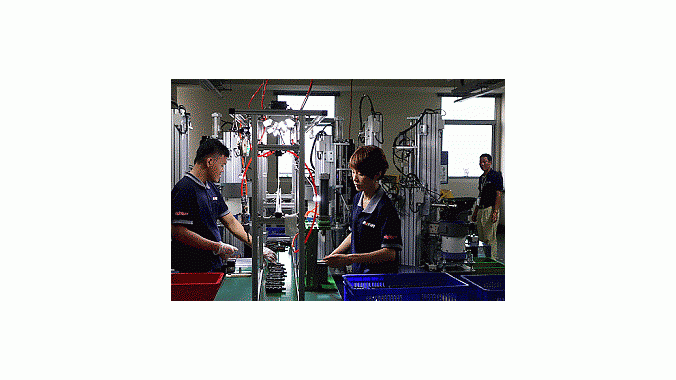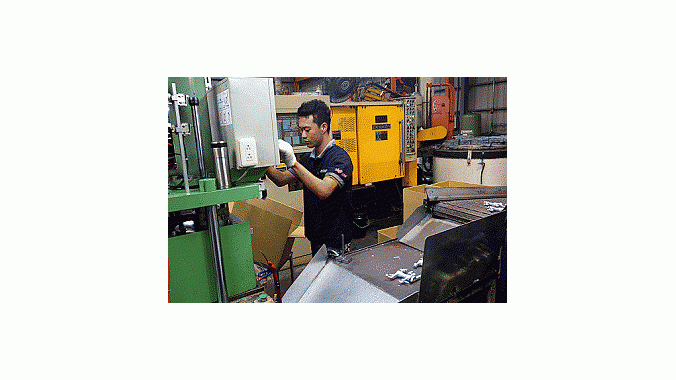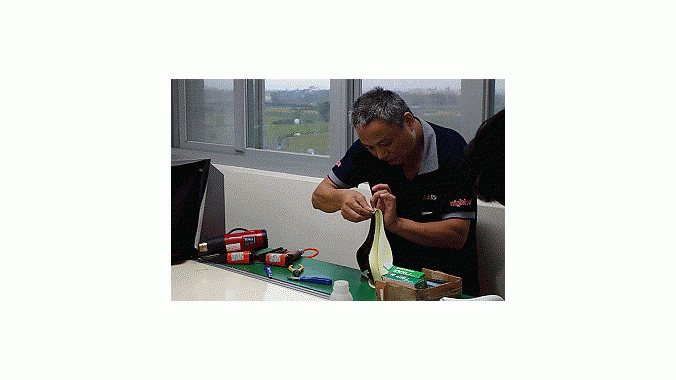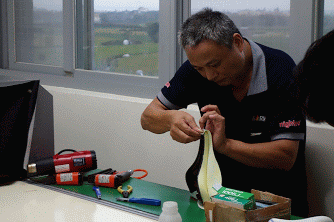
TAICHUNG, Taiwan (BRAIN) — Marwi’s four-story Taiwan factory and global headquarters was one of the most modern automated factories visited on a recent weeklong press tour of facilities arranged by TAITRA, Taiwan’s trade development council.
The facility, completed in 2011, also displayed the greatest contrast in manufacturing techniques and atmosphere.
In one noisy building, heavy, steam-belching machines pounded out forged steel pedal axles and die-cast aluminum pedal bodies — Marwi claims to be the largest pedal maker in the world, producing about 30 million pairs a year.
In a saddle manufacturing area, a huge rotating injection machine, a sort of saddle-making carousel, filled most of a room. The machine covers low-priced saddle bases with padding and covers in one step. Second only to pedals, saddles are a big part of Marwi’s business; the company sells about 6 million saddles a year.
In a nearby pedal-making area, one expensive-looking robot did nothing more than snip off a piece of plastic flashing from an injection-molded pedal body — a quick snip that could have been done by one (very bored) worker with a pair of scissors.
But the effect of Marwi’s faceless machinery and shiny robots was offset by human workers in clean rooms with ample natural light. In one top-floor room with wide windows overlooking rice fields, groups of skilled workers installed covers on high-end saddles by hand — a laborious process more often associated with high-end Italian saddle factories. Printing and cutting saddle covers, likewise, is a precise process, and Marwi’s rooms devoted to these steps would not look out of place in a Swiss clothing factory.
Worldwide, Marwi employs more than 700, with facilities in the Netherlands, Czech Republic and Indonesia.
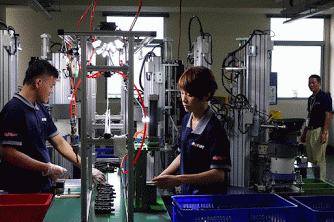
The Marwi Group was formed in 1983 when Marwi merged with Xerama Taiwan. In 1995, the group acquired Union, a German pedal, light and computer maker that dates to 1899. Marwi also owns the Nightpro lighting brand, the Selle San Remo and SSR Pro saddle brands, Xerama components and the Bike Tool by Union bike tool division. The Taichung factory continues to produce Ti-Dye titanium spokes and makes a wide line of forged derailleur hangers for the repair market.
Besides its own products, Marwi produces components and small parts for other companies, including several well-known pedal and saddle brands.
The company operates an R&D center in Germany, and also does product development in Taiwan. The facility we toured included a saddle development lab, which included devices to measure saddle pressure points in real time as riders pedaled on stationary bikes.
Overall, Marwi does about 25 percent of its business in Europe and 14 percent in North America. General manager James Huang said the company expects to see increased sales in China in the coming years, even as Marwi continues to push to the higher end of the market in all its product categories. He also said Marwi is continuing to develop new product areas, possibly including drivetrain parts — one category where Marwi currently has little presence.

